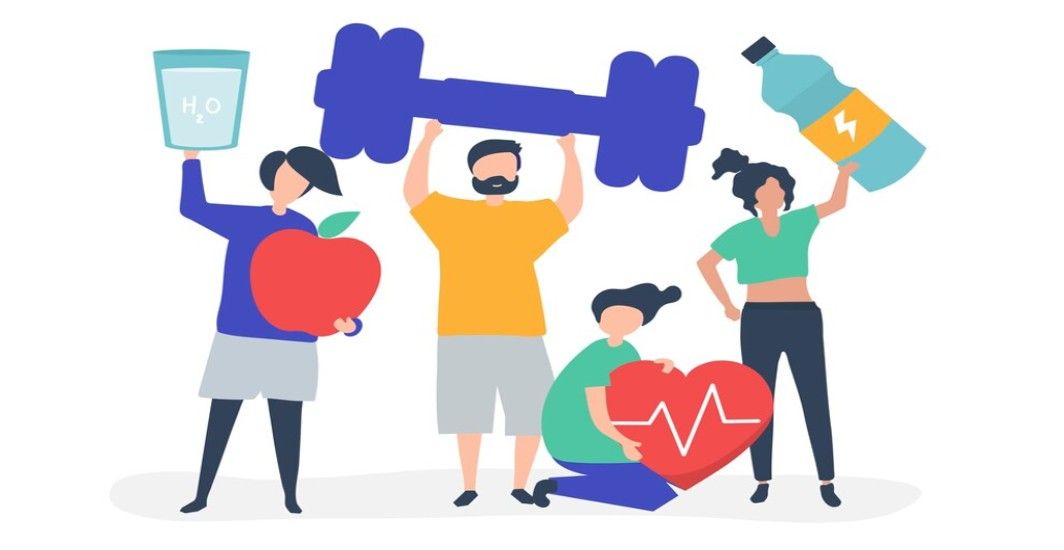Diabetes Management
Can Type 1 and Type 2 Diabetes be Prevented?
2 min read
_0.jpg?tr=q-80)
Preventing diabetes, both Type 1 and Type 2, involves distinct strategies given their different underlying causes. While Type 1 diabetes is primarily an autoimmune condition with a genetic predisposition, Type 2 diabetes is often linked to lifestyle factors and genetics.
Preventing Type 1 Diabetes:
Type 1 diabetes is generally not preventable as it is an autoimmune disease where the immune system mistakenly attacks and destroys insulin-producing beta cells in the pancreas. This form of diabetes is often diagnosed in childhood or adolescence. However, ongoing research is exploring potential ways to intervene in the autoimmune process that leads to Type 1 diabetes. Clinical trials are investigating immunotherapies and other interventions that may delay or prevent the onset of Type 1 diabetes in individuals at high risk.
Preventing Type 2 Diabetes:
Type 2 diabetes, on the other hand, is largely influenced by lifestyle factors. Adopting a healthy lifestyle significantly reduces the risk of developing Type 2 diabetes. Here are key strategies for prevention:
Maintain a Healthy Weight
Obesity is a major risk factor for Type 2 diabetes. Maintaining a healthy weight through a balanced diet and regular physical activity can significantly reduce the risk.
Regular Physical Activity
Engaging in regular exercise helps improve insulin sensitivity and regulate blood glucose levels. Aim for at least 150 minutes of moderate-intensity aerobic activity per week.
Healthy Diet Choices
A diet rich in whole grains, fruits, vegetables, lean proteins, and low-fat dairy can contribute to diabetes prevention. Limiting the intake of processed foods, sugary beverages, and excessive amounts of saturated and trans fats is crucial.
Manage Blood Pressure and Cholesterol
High blood pressure and abnormal cholesterol levels increase the risk of Type 2 diabetes. Regular monitoring and management through lifestyle changes and, if necessary, medications are important.
Avoid Smoking
Smoking is associated with an increased risk of Type 2 diabetes. Quitting smoking not only reduces diabetes risk but also improves overall health.
Limit Alcohol Intake
Excessive alcohol consumption can contribute to weight gain and an increased risk of Type 2 diabetes. Moderation is key.
Regular Health Check-ups
Regular medical check-ups help monitor blood glucose levels, blood pressure, and cholesterol. Early detection of risk factors allows for timely intervention.
Conclusion
While genetics may play a role in Type 2 diabetes susceptibility, lifestyle choices remain pivotal in prevention. Even individuals with a family history of diabetes can significantly reduce their risk by adopting a healthy lifestyle.
You can try the Apollo 24|7 Diabetes Self-Management Tool to log your sugar values, track patterns, know all about food nutrition and more.
Diabetes Management
Consult Top Diabetologists
View AllLeave Comment
Recommended for you
.jpg?tr=q-80)
Diabetes Management
Poha: A Diabetes-Friendly Food Choice for Better Blood Sugar Control
Can Poha feature in a diabetic-friendly diet? Absolutely! Thanks to its low glycaemic index and high fibre content, Poha can contribute to more stable blood sugar levels. However, mindful preparation and portion control remain crucial. Patterns of healthy eating can significantly impact your diabetes management, and a personalised plan, like the Apollo Super 6 programme, could be your perfect ally in this journey towards better health.

Diabetes Management
The Truth About Diabetes and Fad Diets
When making decisions about our health, it's important to base them on sound information and expert advice. While specific fad diets may offer short-term benefits, they have yet to be proven safe or effective in the long run. For constructive and tailored recommendations that will benefit your health in the long term, it's always best to consult with a doctor or nutritional expert.

Diabetes Management
Minimising Prediabetes Risk: The Power of Healthy Lifestyle Adjustments
Prediabetes is reversible with lifestyle changes. Altering diet, embracing physical activity, managing weight, and curbing stress can play a colossal role in controlling blood glucose levels and preventing the progression of diabetes. Remember, the power to change your health trajectory is in your hands.
Subscribe
Sign up for our free Health Library Daily Newsletter
Get doctor-approved health tips, news, and more.
Visual Stories

8 Fruits That are Incredibly Healthy for Diabetes
Tap to continue exploring
Recommended for you
.jpg?tr=q-80)
Diabetes Management
Poha: A Diabetes-Friendly Food Choice for Better Blood Sugar Control
Can Poha feature in a diabetic-friendly diet? Absolutely! Thanks to its low glycaemic index and high fibre content, Poha can contribute to more stable blood sugar levels. However, mindful preparation and portion control remain crucial. Patterns of healthy eating can significantly impact your diabetes management, and a personalised plan, like the Apollo Super 6 programme, could be your perfect ally in this journey towards better health.

Diabetes Management
The Truth About Diabetes and Fad Diets
When making decisions about our health, it's important to base them on sound information and expert advice. While specific fad diets may offer short-term benefits, they have yet to be proven safe or effective in the long run. For constructive and tailored recommendations that will benefit your health in the long term, it's always best to consult with a doctor or nutritional expert.

Diabetes Management
Minimising Prediabetes Risk: The Power of Healthy Lifestyle Adjustments
Prediabetes is reversible with lifestyle changes. Altering diet, embracing physical activity, managing weight, and curbing stress can play a colossal role in controlling blood glucose levels and preventing the progression of diabetes. Remember, the power to change your health trajectory is in your hands.



